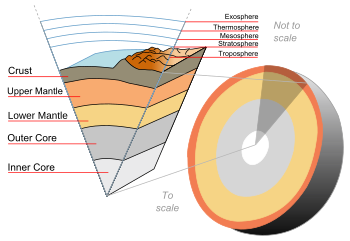No idea. Chemistry and I are not the best of friends. In fact the sciences in general cause me to become rather dyslexic.
But as far as elements go, maybe your friend argues that there are simply no new ways to combine atoms. As in: All the electron arrangements are taken. If that's his logic I could understand but seeing as how better and better microscopes have revealed deeper and deeper secrets to the universe....
I can't help but agree with you. I personally doubt new elements will be found on Mars or the planets closer to the Sun. Most likely Jupiter, Saturn, Uranus, and other planets with the "rare gases" would likely have any components that Earth is missing. Very very very light elements, for example. Because of the afore mentioned solar blast that created our solar system. But surely outside the Solar System and the range of our telescopes we would be naive to assume we've seen it all. If not the semantic term for "elements" there is surely something out there that makes up some tangible "thing"....
Flavors of Quarks and Leptons are good examples. Surely there are "concepts" that have simply missed the Solar System. There will be components, perhaps outside our 5 senses.
As for undiscovered elements I'll let someone more familiar with them take the microphone.
But as far as elements go, maybe your friend argues that there are simply no new ways to combine atoms. As in: All the electron arrangements are taken. If that's his logic I could understand but seeing as how better and better microscopes have revealed deeper and deeper secrets to the universe....
I can't help but agree with you. I personally doubt new elements will be found on Mars or the planets closer to the Sun. Most likely Jupiter, Saturn, Uranus, and other planets with the "rare gases" would likely have any components that Earth is missing. Very very very light elements, for example. Because of the afore mentioned solar blast that created our solar system. But surely outside the Solar System and the range of our telescopes we would be naive to assume we've seen it all. If not the semantic term for "elements" there is surely something out there that makes up some tangible "thing"....
Flavors of Quarks and Leptons are good examples. Surely there are "concepts" that have simply missed the Solar System. There will be components, perhaps outside our 5 senses.
As for undiscovered elements I'll let someone more familiar with them take the microphone.















